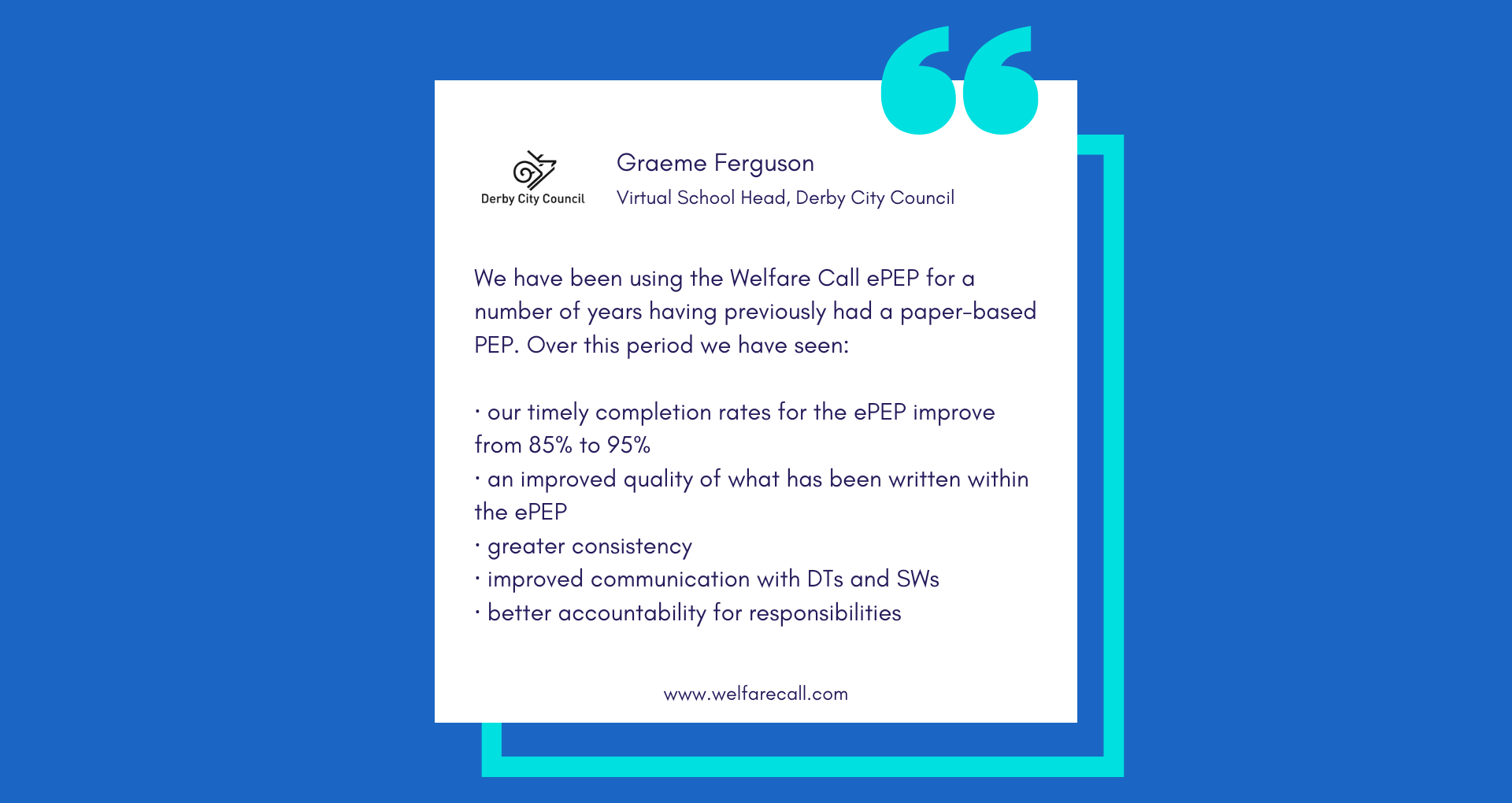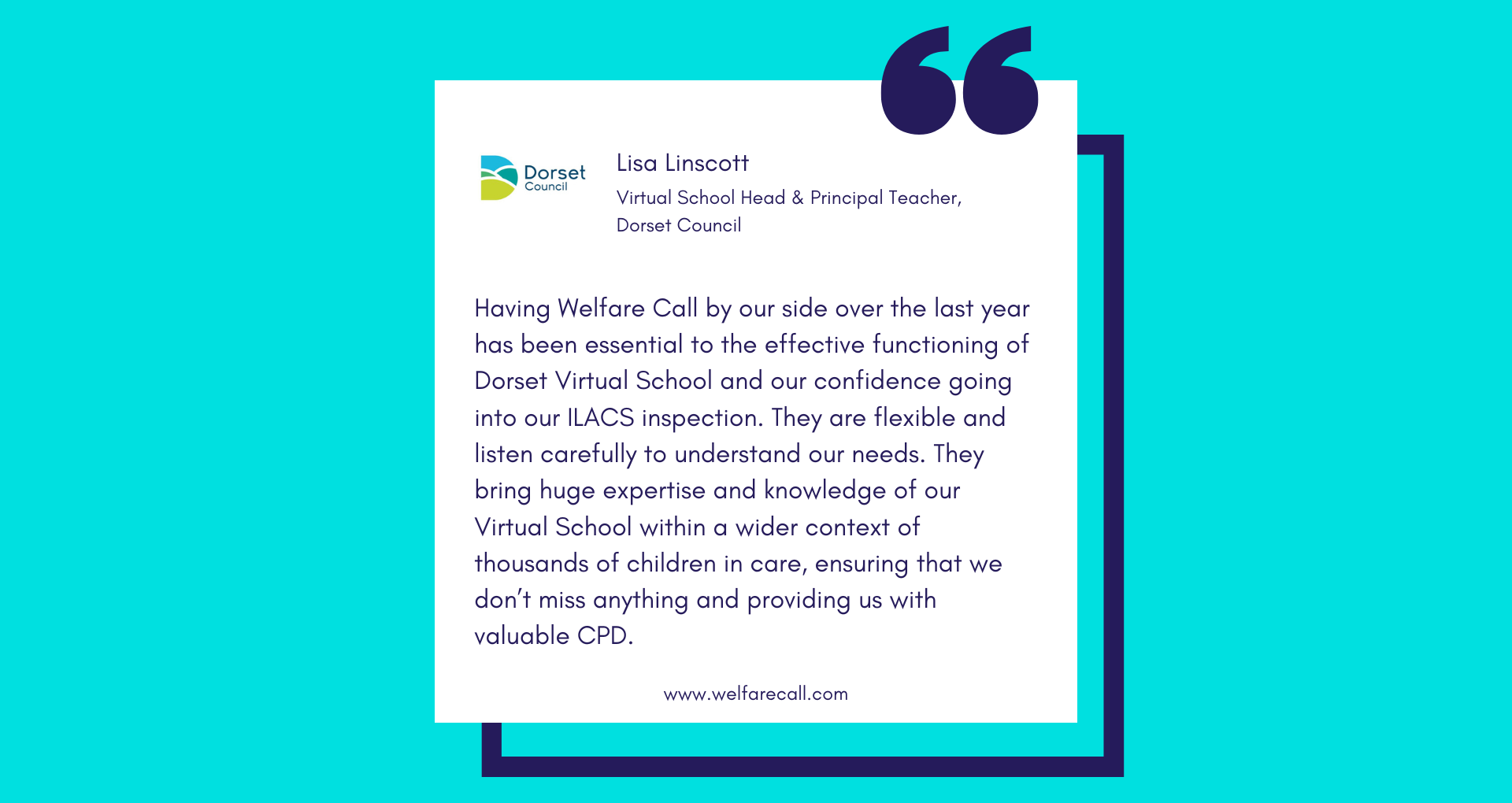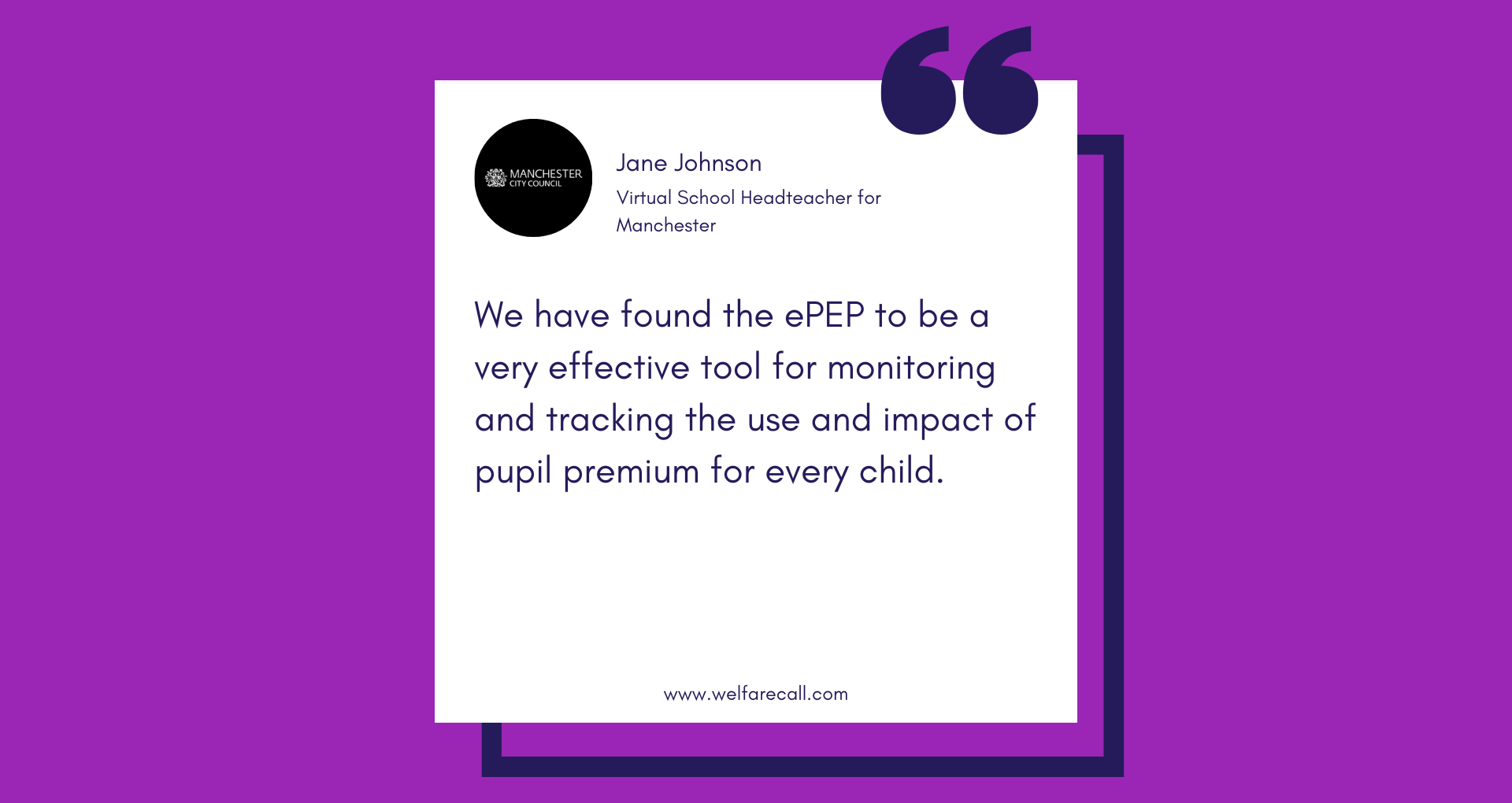Electronic PEPs: their rise in popularity and the benefits of moving your PEPs online

Over the last 15 years Welfare Call has witnessed – and been a crucial part of – a fundamental evolvement in the way children’s personal education plans (PEPs) are accessed and completed.
Whilst there is still a proportion of Virtual Schools that conduct and record their PEP meetings on paper, many have made the leap onto an electronic PEP platform (commonly known as an ePEP) to help with efficiencies around accessibility, reducing the time taken to complete said PEP, quantifying the quality of the PEPs being done, and the impact Pupil Premium allocation is having on their children in care.

Welfare Call continues to innovate and streamline its own ePEP platform in line with statutory guidance and legislation. In addition, we also adopt best practice models and listen to feedback, as well as the needs and requirements of our 60+ local authority ePEP customers.
Naturally, our customers also want to see these enhancements in practice, and our ongoing termly review meetings, webinars, newsletters and forums always ensure this happens. We also openly share these enhancements with the Local Authorities who aren’t currently using Welfare Call’s ePEP service to help support and inform any future decisions.
Why has the focus on electronic PEPs increased over the last few months?
We tend to find interest in our PEP service at pertinent times of the year i.e. when Virtual Heads are budgeting for the new financial year (anytime between February-March if not earlier) or towards the end of the summer term so that Virtual School Headteachers can contemplate what services they wish to adopt prior to the new academic year to best support their vulnerable children.
However, over the past few months, we’ve seen an unprecedented amount of enquiries regarding our ePEP service, so much so in fact that it prompted us to ask; ‘why the sudden rise of interest?’
We decided to investigate further and, after a few insightful conversations with our network of customers, we discovered that due to there being such a shift from paper-based PEPs to electronic versions of PEPs, this is now seen as the status quo, even to the point where it prompts Ofsted in their ILAC inspections to ask questions of the Virtual Schools as to why for those still operating on paper still choose to do so.

How easy is it to move from paper-based PEPs to electronic PEPs?
Discretionally, there may be many reasons why some Virtual Schools still opt for a paper-based PEP. One reservation some may have however is the belief that the transitional process is a really painful one, and can therefore bring about a reluctance to change – and I’m really keen to dispel that myth!
It’s fair to say that having gone through the implementation process over 60 times now, Welfare Call’s experience has allowed us to refine the process and reduce the timeframes it takes from initial consultation to building the templates, conducting the training, and then rolling the PEP system out live to end users. Although we can support any implementation timescales, best practice shows that rolling out the ePEP platform at the beginning of a term (with training being provided at the end of the previous) work best for all end users.
Of course, for any platform or system to function efficiently and effectively, you primarily need buy-in from all stakeholders. In this instance, it not only means from the Virtual School and senior management within the Council but also from the people on the ground who will be completing the PEP document itself on a term-by-term basis i.e. Designated Teachers, Social Workers, Carers and IROs who are assigned to those children. Notifying them early of the intent to switch to an electronic PEP platform, and the benefits it will bring, makes them feel part of the journey instead of it unintentionally feeling like it’s been sprung upon them.
Inherently, you also have to be prepared for end users to have varying levels of technical ability and ‘know how’ which is why at Welfare Call our customer support service goes hand in hand with the ePEP platform itself. As a managed support service, we pride ourselves on being there when needed to field all calls, queries, additional support and training requests to ensure that the end-user has the confidence to use our system. This in turn relieves hours of time for the Virtual School and ensures they do not have to invest any additional money or resource into managing the system themselves. Furthermore, the ePEP platform has embedded workflows whereby the end user is automatically notified of certain situations e.g. upcoming and overdue PEPs and those where no PEP date has been set yet. This again reduces the workload for the Virtual School as these administrative tasks are taken care of.
In terms of the technical implementation of the service itself and the creation of your PEP templates online, we hold regular consultation meetings with the Virtual School to build Early Years, Statutory School Age and Post 16 forms to meet your exact specification, allowing you to completely duplicate your paper PEP to an electronic version should you so wish. Alternatively, you can also view templates from all our other customers to gain some ideas, or you’re more than welcome to adopt the Welfare Call ‘Exemplar’ model which encompasses best practices from our customer base.
Moving your PEPs online means data can be analysed and acted upon to provide better outcomes for children
Virtual Schools also find their lives have been made even easier with our comprehensive reporting suite and analytics platform. Through pre-designed, bespoke and customisable dashboards and reports, Virtual Schools have access to a wealth of data at a click of a button. This ensures that statistical returns, Ofsted inspections, and reports to senior colleagues are no longer an onerous task.
Our reporting suite as well as our analytics service also enables the Virtual School to deep dive into their data, proactively monitor the progress of all their children, see whether pupil premium is being used effectively, and analyse whether statutory timescales are being met with regard to PEP completion and other relevant factors.
Ultimately, having access to your children’s PEPs 24/7, on a platform that can be reached through multiple devices, in a secure location so no documentation is lost along the way, with a comprehensive back-end reporting suite, accompanied by a best-in-class customer support service has been truly transformational for our customers!

Welfare Call currently works with over 100 local authorities in the UK, helping education services, social services, and children’s and families’ departments in meeting their statutory obligations and duties with regard to monitoring vulnerable children and improving their educational outcomes. Get in touch to find out more.
